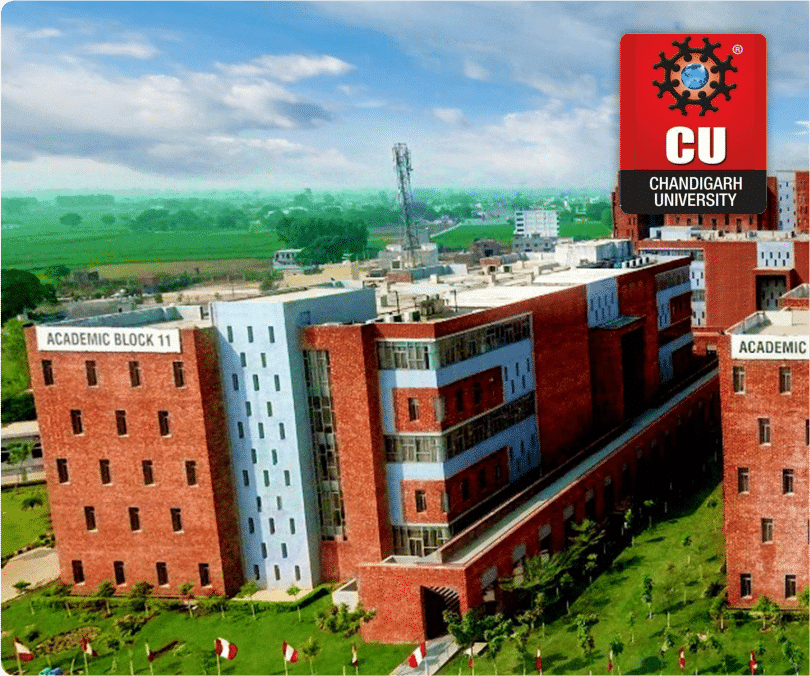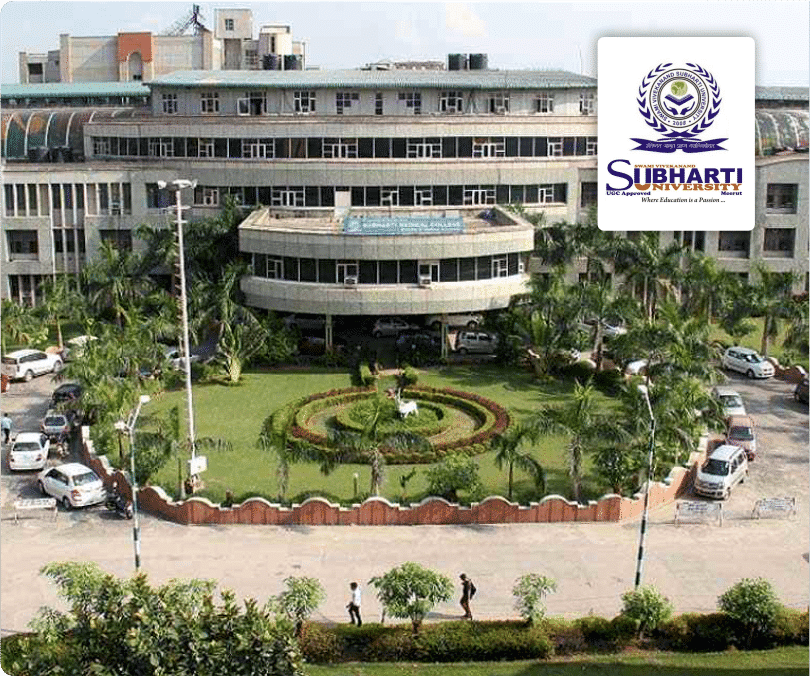
Entry, Mid, Senior Level MBA Average Salary in India
As the need for skilled workers in India continues to grow, an MBA has become one of the most popular degrees for people looking to advance their careers. Whether you are just starting your journey, moving up the corporate ladder, or already in a senior position, understanding salary expectations at different stages of your MBA career is important.
In this blog, we will discuss the entry-level, mid-level, and senior-level MBA average salary in India. By exploring the pay for each career stage, we aim to provide insights that will help future students make the right choices about their education and career paths.
Online/Distance MBA Universities In Other Cities
Understanding MBA Average Salary in India
Before diving into the details, it’s essential to recognize the factors that influence the MBA average salary in India. Salaries can vary widely based on several elements, including the chosen specialization, industry, and geographic location. Additionally, experience level plays a crucial role in determining compensation, with entry-level positions typically offering lower salaries compared to mid-level and senior roles. Understanding these factors can help prospective MBA students set realistic salary expectations and make informed decisions about their education and career paths. Let’s take a closer look at the average salaries across different career stages for MBA graduates in India.
Entry-Level MBA Salaries in India
Entry-level MBA positions typically refer to roles suited for graduates with little to no prior managerial experience, usually under three years. The MBA average salary in India for these roles can range from ₹7 LPA to ₹12 LPA. Salary packages can vary based on the industry, with tech startups and e-commerce often on the higher end, while traditional sectors like manufacturing might offer lower starting wages.
Here is a table with job roles, average salaries, and descriptions for Entry-Level MBA Salaries in India:
| Job Role | Description | Average Salary (LPA) |
|---|---|---|
| Marketing Executive | Plans and executes marketing campaigns to promote products or services. | 6–8 |
| Financial Analyst | Analyzes financial data to provide insights for decision-making. | 5–7 |
| Business Development Executive | Identifies and pursues new business opportunities to drive growth. | 5–9 |
| HR Assistant | Supports HR operations, including recruitment, onboarding, and record-keeping. | 4–7 |
| Junior Operations Executive | Assists in managing daily operations and improving workflows. | 5–8 |
| Data Analyst | Collects and analyzes data to generate actionable insights. | 6–10 |
| Junior Product Manager | Supports the product lifecycle, including research and feature prioritization. | 8–12 |
| Supply Chain Associate | Manages inventory, vendor coordination, and timely deliveries. | 5–9 |
| Consulting Analyst | Researches and analyzes data to support consulting projects. | 7–12 |
| Investment Banker | Advises clients on mergers, acquisitions, and capital raising strategies. | 10–16 |
Mid-Level MBA Salaries in India
After gaining 5-10 years of experience, MBA graduates can expect a significant increase in salary. Mid-level professionals, such as department managers or senior analysts, typically earn between ₹12 LPA to ₹25 LPA. This range can be influenced by factors such as the success of the individual, the growth of the company, and external economic conditions. This increase in earnings aligns with the overall trend in the MBA average salary in India, which reflects the value placed on experienced professionals in the job market.
Here is a table with job roles, average salaries, and descriptions for Mid-Level MBA Salaries in India:
| Job Role | Description | Average Salary (LPA) |
|---|---|---|
| Marketing Manager | Develops advanced marketing campaigns, leads teams, and handles brand strategies. | 10–15 |
| Financial Manager | Oversees the company’s financial health by managing budgets, forecasts, and financial reports. | 12–18 |
| Business Development Manager | Builds and maintains strategic partnerships, manages sales teams, and drives revenue growth. | 10–14 |
| Human Resources Manager | Manages talent acquisition, employee development, and strategic HR planning. | 9–14 |
| Operations Manager | Improves operational processes, ensures efficiency, and manages key business functions. | 10–16 |
| Data Scientist | Leverages data analytics and machine learning for complex problem-solving and decision-making. | 15–20 |
| Product Manager | Directs product development strategies and coordinates cross-functional teams to meet goals. | 14–20 |
| Supply Chain Manager | Optimizes supply chain processes and ensures timely delivery of goods and services. | 10–15 |
| Management Consultant | Provides high-level solutions to improve business efficiency and solve complex problems. | 15–25 |
| Investment Banker | Advises clients on large-scale financial transactions and raises capital for companies. | 20–30 |
Senior-Level MBA Salaries in India
Senior-level MBAs with over 10 years of experience, particularly those in executive roles like Vice Presidents or C-suite positions, can see salaries ranging from ₹30 LPA to ₹1 Crore or more. These roles involve significant responsibility, including strategic decision-making and leadership, directly correlating with higher pay scales.
This impressive earning potential highlights the strong link between experience, role, and salary in the MBA landscape. Understanding the MBA Average Salary in India can help aspiring professionals set realistic expectations and goals as they navigate their careers.
Here is a table with job roles, average salaries, and descriptions for Senior-Level MBA Salaries in India:
| Job Role | Description | Average Salary (LPA) |
|---|---|---|
| Chief Marketing Officer (CMO) | Develops and oversees the organization’s overall marketing strategy, branding, and market positioning. | 25–45 |
| Chief Financial Officer (CFO) | Manages the company’s financial strategy, investments, and risk assessment. | 30–60 |
| Director of Business Development | Leads the development of strategic partnerships, mergers, and acquisitions to drive growth. | 25–50 |
| Head of Human Resources | Designs and implements HR policies, oversees talent strategy, and ensures organizational culture alignment. | 20–40 |
| VP of Operations | Oversees end-to-end business operations, ensuring efficiency and alignment with corporate goals. | 25–45 |
| Senior Data Scientist | Drives data-driven decision-making, builds advanced models, and leads data analytics teams. | 30–50 |
| Senior Product Manager | Leads product vision, development, and roadmap execution at a strategic level. | 28–50 |
| Supply Chain Director | Strategizes and oversees the entire supply chain to ensure cost efficiency and smooth delivery. | 25–40 |
| Senior Management Consultant | Advises CEOs and boards on critical business decisions, focusing on growth and transformation. | 35–70 |
| Managing Director/CEO | Responsible for overall business performance, strategy, and long-term growth of the organization. | 50–100 |
MBA Specializations and Their Role in Salary Determination
Choosing the right MBA specialization can significantly impact your career and salary potential. As the business world becomes more competitive and diverse, employers are looking for candidates with specialized knowledge and skills. Here’s how MBA specializations play a key role in determining salaries, which directly affect the MBA average salary in India:
Market Demand for Specializations
Certain MBA specializations are in higher demand, leading to more job opportunities and better pay for graduates in those fields. For instance, specializations in data analytics, digital marketing, and healthcare management are increasingly popular due to the growth of these industries. As a result, graduates with these specialized skills often earn higher salaries than those in less sought-after areas. This trend contributes to the overall MBA average salary in India.
Skill Set and Expertise
Each MBA specialization teaches students specific skills that employers find valuable. For example, an MBA in finance prepares graduates for jobs in investment banking and financial analysis, where strong math skills are essential. These specialized skills often lead to higher starting salaries compared to general management roles, which may not require such focused knowledge. This difference in skills and job roles is reflected in the MBA average salary in India.
Industry Variations
The industry you work in can also affect salary levels. Some fields, like technology, finance, and consulting, tend to offer higher salaries for specialized roles compared to others, such as non-profits or education. For instance, an MBA with a specialization in information technology can lead to well-paying jobs in tech companies, where the average salary can be significantly higher than in other sectors. This industry impact is a crucial factor in the MBA average salary in India.
Career Advancement Opportunities
Specializing in a particular area can help you move up the career ladder more quickly, leading to higher salaries over time. Professionals with specialized knowledge are often seen as experts in their field, making them strong candidates for promotions and leadership roles. For example, an MBA graduate specializing in operations management may be able to reach senior management positions faster than those without a specialization, thus increasing their earning potential. This upward mobility influences the MBA average salary in India significantly.
Geographic Influence
Salary differences can also occur based on where you live. Some regions have more companies in specific industries, creating greater demand for specialized MBA graduates. For instance, graduates with an MBA in supply chain management may find higher-paying jobs in logistics hubs, while those specializing in marketing may discover more lucrative positions in major cities with many businesses. Geographic factors can thus affect the MBA average salary in India.
Networking and Alumni Influence
MBA programs often provide networking opportunities tailored to specific specializations. Connecting with alumni working in your chosen field can lead to mentorship and job placement opportunities, which can further boost salary prospects. The stronger the network, the better the chances of landing high-paying jobs in competitive industries. This networking can directly influence the MBA average salary in India.
Personal Interest and Passion
Ultimately, choosing an MBA specialization should match your interests and career goals. While salary is important, pursuing a field you are passionate about can lead to greater job satisfaction and success. Being deeply engaged in a specialization often results in better performance and opportunities for advancement, which can positively affect your salary in the long run.
Conclusion
While an MBA can definitely improve your job opportunities and salary, it’s important to make sure your education matches your personal career goals and what the job market needs. Understanding the MBA Average Salary in India is crucial, as smart choices about your specialization and industry can greatly affect how much you earn over your career.
If you are thinking about getting an MBA, consider your career path and how an MBA will help you reach your long-term goals. Do thorough research and choose a specialization that interests you and provides the financial rewards you want to achieve.
Most Popular Blogs

Online BCA Courses in Jain University Online

Distance Education at Pondicherry University

Top 4 colleges to pursue Distance BBA in Andhra Pradesh

What are the top distance BSc colleges in Kerala

Know about the top 3 distance BCom universities in Madhya Pradesh



















